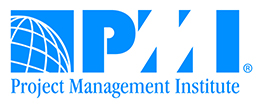Things to know before becoming a PMP – Part Five
The instructor
Ah, the instructor. We haven’t talked about him or her yet. And this is so important. Because if the PMBOK is the source material for all, and the vendor materials are more or less the same, and the cost is right, what’s left to distinguish the courses? Why, the instructor of course. Anybody here ever had a bad teacher? Me too. And you get some guy who is A) boring or B) has no clue what he’s talking about. And now you’ve shelled out a fair amount of money (not too many courses are less than $1000) and you are stuck learning from a lousy instructor. (Short of asking for a refund).
So how do you gauge the instructor’s worthiness? Well, after you’ve narrowed down your choices, contact the company. See if they’ll allow you to engage in a dialog with the instructor beforehand. (I have no idea if they’ll do this. But then again, why not? Worth asking I think). Do you like his or her voice? I hope so because you’ll be listening to it for a couple of days. Does he sound competent? Are there any places on the Internet where he has recordings available? Can you audit a class? When you have the instructor on the phone, ask him or her if they’ll allow you to stay in touch for a while after the class, at least by email, to ask questions. I honestly don’t know what the answer will be. But the best instructors shouldn’t fear being inundated with questions if they’ve done their job well. Lastly, ask for references. Ask to speak to someone who’s been taught by the guy or gal who’s going to teach you. Get two or three references. Don’t like what you hear? Move on.
Once you’ve selected a company to work with – or maybe even before – another question to consider is this: Should I take a class for three days, then after that study for some period of days or weeks and then take the exam? Or should I go for one of these boot camps where I walk in to class on Monday at 9am and by Friday at 5pm I’ve taken the PMP? Boy, that’s a hard one. I’ve only once taught this way and I wasn’t too thrilled about doing it. (And I definitely wouldn’t have taken it this way). I’m a fan of people coming to class for three days, studying for several weeks and then taking the exam. I feel much better about that. I think it gives them a chance to really study and absorb the material. But guess what? People take boot camps all the time. Cheetah, notably, has been successful in this realm. So if you think this is for you, suggest investigating it and finding out if this is a way you can best learn.
Another question is, Should I take a virtual on-line session or am I much better off in an on-site session? Again, it depends somewhat on which one makes you feel more comfortable. Do you like being in a classroom situation where you can see the instructor, she can see you and you can talk to her to get personal one-on-one advice? Further, do you need to get away from the office for a few days in order to avoid distractions? (All of the above applied to me). Then by all means go for an on-site class.
What is a typical on-site class like?
Classes often start off with an assessment exam to gauge your current level of knowledge and test-readiness. People typically score poorly on these but it really helps as a baseline, to use a project management term. After that, the instructor will work you through a set of slides geared towards the instruction book you’re using. So you’ll talk in turn about Cost, Risk, Procurement, etc. Typically you’ll take self-exams as you go along to see what you’ve learned in each Knowledge Area. Exercises will be done, notably in key “must-know” areas such as network diagramming and Earned Value. There will be a lot of drill and repetition, clarification of terms you know but had forgotten, and introduction to new terms. You’ll also talk about the exam environment and how to get ready for the big day. Time permitting, you may also take an exam at class end to see how you’ve progressed. By the end of three days, you will be pretty well saturated with material. But there is a lot of information for you to learn so be prepared for that.
Now if you decide against a virtual class, please don’t abandon it because you think it somehow inferior. I have personally been teaching virtual classes for 6 or 7 years and I can tell you they’re quite effective. Using tools such as WebEx or Adobe Connect 8, a good instructor can overcome the lack of closeness you might otherwise feel. (Students need neither WebEx nor Adobe. Just a browser. These are tools that the instructor uses).
(Next: The virtual class. And how much time must I devote to study)


Comments are closed.